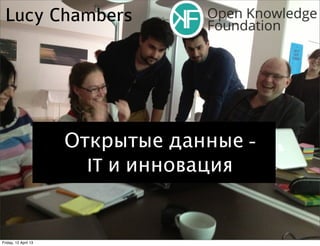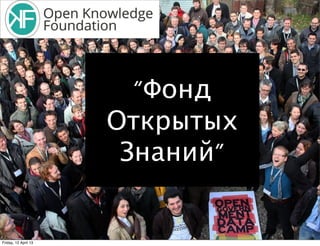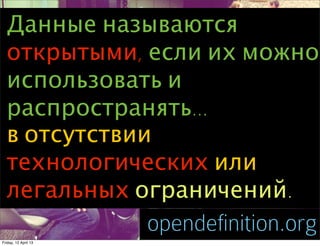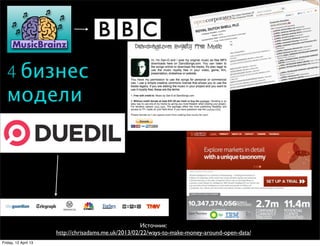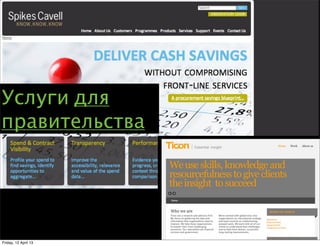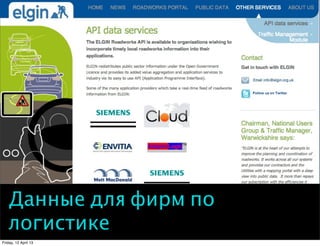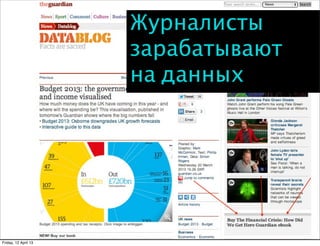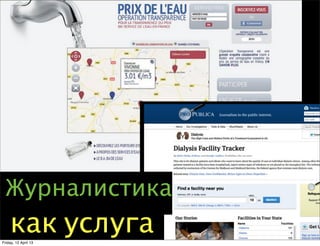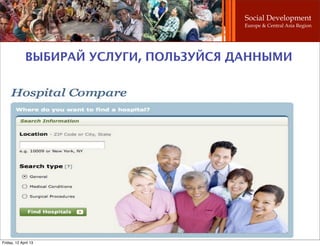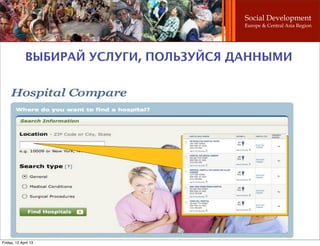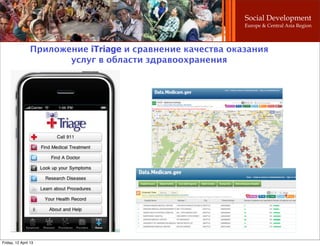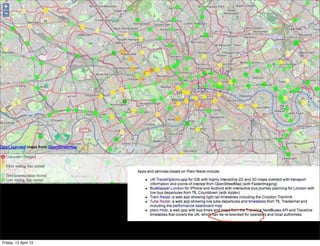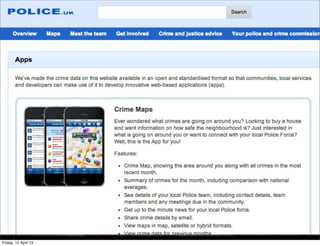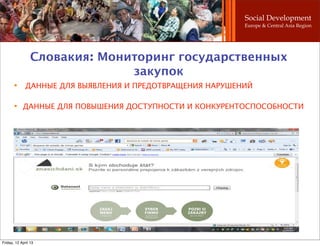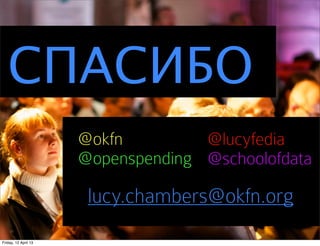It and innovation
- 1. Lucy Chambers абаКббббаЕ аДаАаНаНбаЕ - IT аИ аИаНаНаОаВаАбаИб Friday, 12 April 13
- 2. таЄаОаНаД абаКббббб ааНаАаНаИаЙт Friday, 12 April 13
- 3. ааАаНаНбаЕ аНаАаЗбаВаАбббб аОбаКббббаМаИ, аЕбаЛаИ аИб аМаОаЖаНаО аИбаПаОаЛбаЗаОаВаАбб аИ баАбаПбаОбббаАаНббб... аВ аОббббббаВаИаИ баЕб аНаОаЛаОаГаИбаЕбаКаИб аИаЛаИ аЛаЕаГаАаЛбаНбб аОаГбаАаНаИбаЕаНаИаЙ. opendefinition.org Friday, 12 April 13
- 4. ааОбаЕаМб аМб баЕаЙбаАб аОаБ ббаОаМ аГаОаВаОбаИаМ? Friday, 12 April 13
- 5. 4 аБаИаЗаНаЕб аМаОаДаЕаЛаИ аббаОбаНаИаК: http://chrisadams.me.uk/2013/02/22/ways-to-make-money-around-open-data/ Friday, 12 April 13
- 7. ааАаНаНбаЕ аДаЛб баИбаМ аПаО аЛаОаГаИббаИаКаЕ Friday, 12 April 13
- 8. аббаНаАаЛаИббб аЗаАбаАаБаАббаВаАбб аНаА аДаАаНаНбб Friday, 12 April 13
- 9. аббаНаАаЛаИббаИаКаА аКаАаК ббаЛбаГаА Friday, 12 April 13
- 10. ааИаЗбаАаЛаИаЗаАбаИб аИ ббаЛбаГаИ аДаЛб аЖббаНаАаЛаИббаОаВ Friday, 12 April 13
- 11. ааАаКаИаЕ аДаАаНаНбаЕ? Friday, 12 April 13
- 12. ааАаКаИаЕ аДаАаНаНбаЕ? абаБбаЕ аДаАаНаНбаЕ! Friday, 12 April 13
- 13. абаИаЛаОаЖаЕаНаИб, аКаОбаОббаЕ баДаЕаЛаАбб аМаИб аЛбббаЕ... аббаОбаНаИаК: matthewvenn CC-BY Friday, 12 April 13
- 14. ааАаК ббаКаОаНаОаМаИбб аДаЕаНбаГаИ аДаОаМаА realtarif.ru Friday, 12 April 13
- 15. Social Development Europe & Central Asia Region ааЋааа аа аЃаЁааЃаа, ааааЌааЃааЁаЏ аааааЋаа Friday, 12 April 13
- 16. Social Development Europe & Central Asia Region ааЋааа аа аЃаЁааЃаа, ааааЌааЃааЁаЏ аааааЋаа Friday, 12 April 13
- 17. Social Development Europe & Central Asia Region абаИаЛаОаЖаЕаНаИаЕ iTriage аИ ббаАаВаНаЕаНаИаЕ аКаАбаЕббаВаА аОаКаАаЗаАаНаИб ббаЛбаГ аВ аОаБаЛаАббаИ аЗаДбаАаВаОаОб баАаНаЕаНаИб Friday, 12 April 13
- 18. Friday, 12 April 13
- 19. Friday, 12 April 13
- 20. Friday, 12 April 13
- 21. Friday, 12 April 13
- 22. Social Development Europe & Central Asia Region аЁаЛаОаВаАаКаИб: ааОаНаИбаОбаИаНаГ аГаОббаДаАбббаВаЕаНаНбб аЗаАаКбаПаОаК яЎ аааааЋа аааЏ ааЋаЏааааааЏ а аа ааааЂаа ааЉааааЏ ааа аЃаЈаааа яЎ аааааЋа аааЏ ааааЋаЈааааЏ аааЁаЂаЃааааЁаЂа а аааааЃа аааЂааЁаааЁаааааЁаЂа Friday, 12 April 13
- 23. аЇаЕаГаО аНаАаДаО ббаЕаБаОаВаАбб? тЂ ааАбаИаНаОбаИбаАаЕаМбаЕ баОбаМаАбб тЂ ааНббббаКбаИаИ тЂ ааАбаАаНбаИб, ббаО аДаАаНаНбаЕ аНаЕ аИббаЕаЗаНбб Friday, 12 April 13
- 24. аЁаааЁааа @okfn @lucyfedia @openspending @schoolofdata lucy.chambers@okfn.org Friday, 12 April 13

